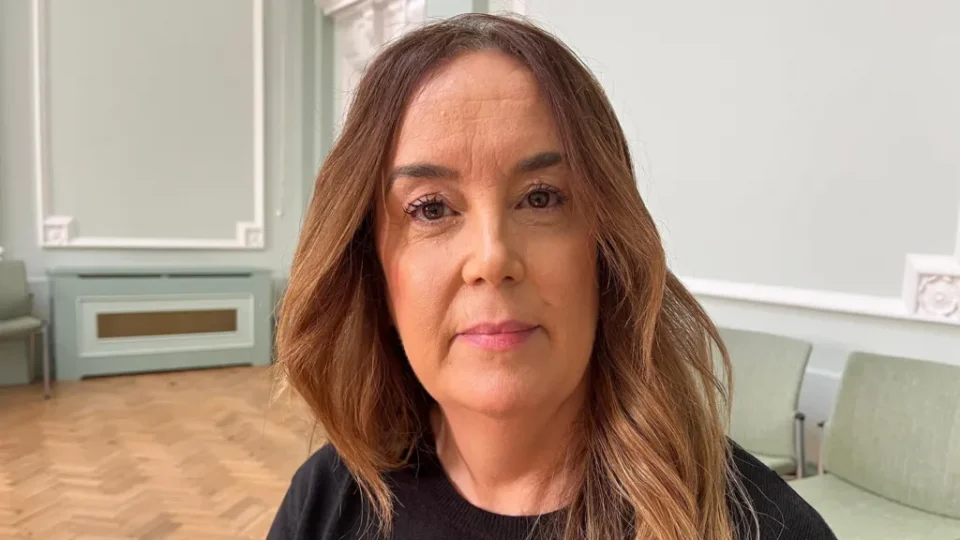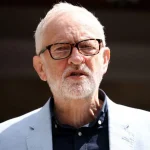“We’re confronted with an exploitative sector that prioritizes profits over people’s well-being.”
Tracy advocates for a prohibition on gambling advertisements, a mission fueled by her husband’s accumulation of £85,000 in debt.
“Gambling advertisements have become commonplace, and as someone directly impacted by this issue, I find them extremely distressing. I watch them and reflect on how they’ve turned my life upside down,” she expressed.
In her hometown of Merton, there’s no refuge from the surrounding betting culture, with seven betting shops lining her high street.
Having been involved in gambling for over three decades, Tracy estimates her husband has lost millions throughout that time.
“The spiraling debts and deception significantly damaged my mental health. I was having a hard time managing our expenses; we nearly lost our house due to our inability to pay rent, and bailiffs often came knocking,” she recounted.
Drawing from her personal struggles, Tracy has taken on the role of lead affected other at GamLearn, a charity focused on supporting individuals facing gambling-related challenges.
“In some instances, gambling has ripped families apart,” Tracy remarked.
“I believe we need to put an end to these advertisements; their presence is unnecessary.”
On Thursday, Tracy participated in an event marking Haringey’s membership in the Coalition to End Gambling Ads (CEGA), a collective of organizations dedicated to minimizing gambling-related harm by halting its promotion.
The north London council is advocating for a nationwide ban on gambling advertising, claiming to be the first council in the UK to take such a stance.
According to the Gambling Commission, which oversees gambling and gaming regulations, Haringey ranks fourth among London boroughs for having the highest number of licensed gambling establishments, following Brent, Enfield, and Newham.
Haringey Council reported that approximately 8,000 residents suffer from gambling-related harms, with around 25,000 additional individuals, like their family and friends, also affected.
The Labour-led council stated that endorsing the commitment would pressure the government to impose restrictions on gambling advertising and its adverse effects on people and their families.
In October, Lisa Nandy, the Secretary of State for Culture, Media and Sport (DCMS), informed Parliament that the government was “determined to enhance protections” to ensure that individuals can “continue to enjoy gambling as a leisure activity without the risks associated with problematic gambling.”
She mentioned that the government would consider community feedback in this process, emphasizing a balanced approach that allows the gambling industry, which brings joy to many, to flourish while also implementing strong safeguards against gambling issues.
Will Prochaska, the director of CEGA, argued that these two objectives are not compatible.
“The evidence is abundantly clear that we cannot expand the gambling sector while ensuring consumer safety—this is a crucial point that Lisa Nandy needs to understand,” he stated.
A spokesperson for the DCMS acknowledged the significant impact that harmful gambling can have on individuals and their families, reiterating their commitment to bolster protections for those at risk.
“The industry must take responsibility to elevate standards so that gambling advertising does not contribute to harm, and this will be closely monitored,” the spokesperson said.
“The government has already proposed a mandatory levy on gambling profits to generate £100 million for research, prevention, and treatment of gambling-related harms.”
The Gambling Commission emphasized the need for targeted interventions related to advertising and sponsorship, particularly to “ensure that children and vulnerable individuals experience considerably less exposure.”
According to Haringey Council, the borough incurs over £8 million annually in costs associated with the consequences of gambling harm, including homelessness, adult social care, NHS expenditures, and unpaid rent.
A spokesperson indicated that the council collaborates with local communities to provide support for individuals affected by gambling, including early intervention initiatives in schools and assistance with debt and refinancing.
Mr. Prochaska commended Haringey for being the first council to join CEGA, stating, “Local councils lack sufficient authority to safeguard their residents from the exploitative gambling industry, but they do possess a strong national voice.”
“It’s imperative that other councils take note of Haringey’s example.”
Councillor Ajda Ovat, Haringey’s cabinet member for communities, acknowledged the necessity for “greater collaboration to tackle gambling harm on a broader scale and expressed hope that additional councils will follow our lead to instigate essential changes.”
In Sadiq Khan’s 2021 mayoral manifesto, he promised to prohibit gambling advertisements on the Tube and other Transport for London (TfL) services.
Speaking to the BBC on Friday, the Mayor of London stated: “We are all aware of the effects gambling can have on young and vulnerable individuals and their families. The delay in progress is largely due to the absence of national guidelines.”
“When we eliminated advertisements for foods high in fat, sugar, and salt, we had national standards to follow—such standards are lacking for gambling.”
After 36 years of battling addiction, Tracy noted that her husband is now doing well in recovery.
“It’s crucial for people to grasp the destruction this addiction brings. Gambling advertisements must be prohibited,” she insisted.
A representative from the Gambling Commission stated, “All marketing of gambling products should be conducted in a socially responsible manner.”
“Our stance on advertising is outlined in our 2023 Gambling Act guidance to the government, which clearly indicates that targeted action on advertising and sponsorship is essential, especially to significantly reduce the exposure of children and vulnerable individuals.”
The Betting and Gaming Council (BGC) asserted that all gambling advertisements follow stringent regulations and emphasize responsible gambling messages.
A spokesperson highlighted that BGC members devote 20% of their advertising across television, radio, and digital platforms to promoting responsible gambling initiatives.
“The previous government indicated that research did not demonstrate a direct causal link between advertising exposure and the emergence of gambling problems,” they added.
If you or someone you know has been impacted by the issues discussed in this article, support and resources are available through the BBC Action Line.


